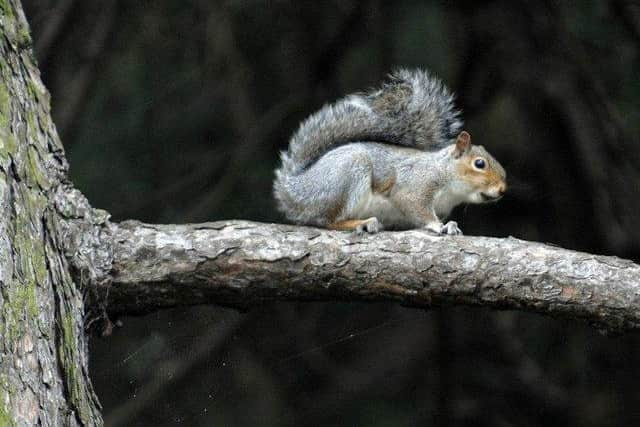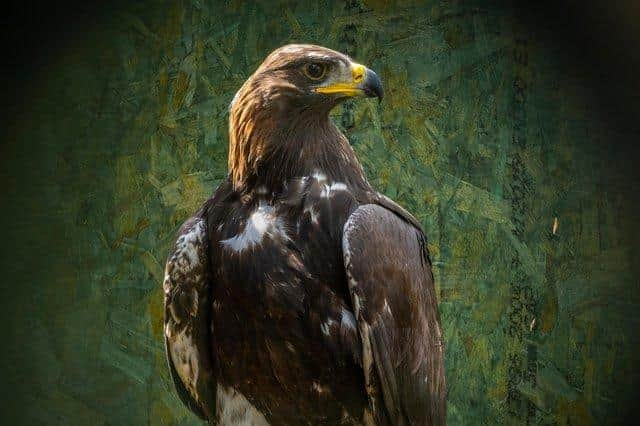Project to protect red squirrels is helping to feed young golden eagles
Two separate schemes in the Dumfries-shire area - which aim to protect red squirrels and boost golden eagle numbers - are working together.
The Moffat and District Red Squirrel Group said the decision to control grey numbers had not been taken easily but was necessary to prevent their relentless march north.
Advertisement
Hide AdAdvertisement
Hide AdHowever, it said it was "delighted" to be able to assist the South of Scotland Golden Eagle Project (SSGEP) which has successfully brought the giant raptors back to the skies of south west Scotland.


The Moffat group has received support from the Saving Scotland's Red Squirrels (SSRS) scheme after raising the alarm about the reds which are "seriously threatened" .
The major concern is the spread of squirrelpox - which is carried by grey squirrels but is deadly only to reds – and can wipe out a population.
Giuliana Sinclair, of the Scottish Wildlife Trust, said the co-operation benefitted both groups involved.


"The collaboration between the two projects really happened through serendipity," she said.
"SRS already had an active volunteer group in the Moffat area and it just happens to be the same area where the SSGEP has been successfully rearing and releasing their chicks."
She stressed that, although it might seem unusual in conservation terms, it was an extension of ongoing efforts to limit grey squirrels numbers.
"It might seem counter-intuitive to feed one species to another but it's important to understand that grey squirrels are not being controlled for the purposes of feeding golden eagles," said Ms Sinclair.
Advertisement
Hide AdAdvertisement
Hide Ad"This is vital conservation work that's already ongoing in the local area."
She said reducing grey squirrel numbers was necessary in order to preserve a home in southern Scotland for the reds.
"Of course, it is not an easy decision for any nature lover to make," she added.
Alistair Graham of the Moffat group said its trapping programme had already seen reported red squirrel sightings double this year compared with 2019. However, there is concern about recent reports of greys being seen for the first time in the Stewartry area, particularly in the Dalbeattie Forest.
"Although necessary, the decision to control grey squirrels is not an easy one to make," he said.
"So we were delighted when Forestry and Land Scotland asked if we would consider saving our grey squirrel carcasses for the recently arrived juvenile eagles."
The SSGEP has seen young birds introduced to the region from the Highlands in a bid to boost numbers.
As they settle into their new home, they initially require help to feed and while no cases have as yet been recorded, there is concern that poisoned bait could be used to lure them by rogue country users determined to halt the programme.
Advertisement
Hide AdAdvertisement
Hide AdUntil the scheme was introduced, golden eagle and sea eagle sightings were all too rare across Dumfries and Galloway.
There were known to be two pairs of golden eagles in Kirkcudbrightshire but no sea eagles – also known as white tailed eagles – had set up home in the area in living memory..
A message from the Editor:
Thank you for reading this article. We're more reliant on your support than ever as the shift in consumer habits brought about by coronavirus impacts our advertisers.
If you haven't already, please consider supporting our trusted, fact-checked journalism by taking out a digital subscription.
Comments
Want to join the conversation? Please or to comment on this article.